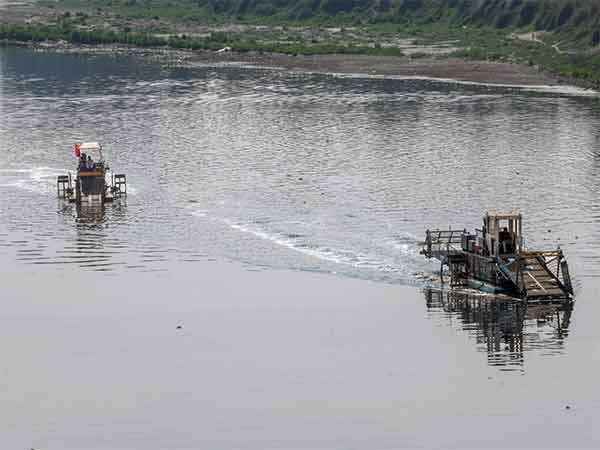New Delhi: In a significant step toward safeguarding the Yamuna River, the Delhi Government has requested the Territorial Army to protect the river from dumping, mining, encroachment, and theft. This decision aims to preserve the river’s natural state and achieve the government’s goal of cleaning the Yamuna within three years.
Delhi’s Water Minister, Parvesh Verma, highlighted that the focus is on educating the public rather than imposing fines. “The Delhi government has requested the Territorial Army to protect the Yamuna. We want to educate people on why they should not throw garbage in the river or waste water, rather than just imposing fines,” he stated on Thursday.
The Yamuna has become a key priority for the newly formed Delhi Government. The proposal has been widely discussed, and a formal request to the Territorial Army is expected soon. Concurrently, a citywide campaign will be initiated to raise awareness about the importance of protecting the river.
The Territorial Army’s Ecological Task Force, which is capable of safeguarding the Yamuna, is anticipated to be deployed in the coming months. A senior official from the Ministry of Defence mentioned, “While we are not officially informed about this yet, if requested, the Territorial Army’s Ecological Task Force is dedicated to such tasks and capable of protecting the River Yamuna.”
This initiative is critical due to the severe pollution affecting the Yamuna River, caused by untreated sewage discharge, industrial effluents, garbage dumping, illegal sand mining, water theft, and encroachment.
In a related initiative, Delhi Lieutenant Governor V K Saxena has launched an intensive campaign to clean the Yamuna floodplains, which includes deploying a 94-member company from the Territorial Army to ensure that cleaned sections remain free from encroachment.
The recent elections in Delhi have highlighted the deteriorating condition of the Yamuna River. Despite multiple efforts and significant financial investments, the 22-km stretch of the river flowing through Delhi continues to resemble a sewage canal. The lack of meaningful progress signals the urgent need for a structured, accountable, and effective action plan to restore the Yamuna.
In a decisive response to worsening pollution, the Jal Shakti Ministry has developed a ‘Yamuna Master Plan,’ which will be submitted to Prime Minister Narendra Modi for approval. This initiative seeks to restore heavily polluted sections of the river in a mission-driven manner, drawing lessons from the successful Sabarmati Riverfront Project.
The Yamuna Master Plan outlines a comprehensive, sustainable, and scientific approach to river rejuvenation, focusing on targeted interventions through a four-pronged strategy:
- Waste and Silt Removal: Clearing accumulated waste and silt to restore the river’s natural flow.
- Drain Cleaning: Identifying and treating major polluting drains to prevent the discharge of untreated wastewater.
- Monitoring of STPs: Strengthening oversight of Sewage Treatment Plants (STPs) to ensure effectiveness and regulatory compliance.
- Expansion of Treatment Infrastructure: Increasing wastewater treatment capacity to efficiently manage the growing urban effluents.
With a mission-driven approach, the plan aims to transform the Yamuna into a clean and rejuvenated river, addressing long-standing environmental issues in the 22 km stretch that flows through Delhi.

